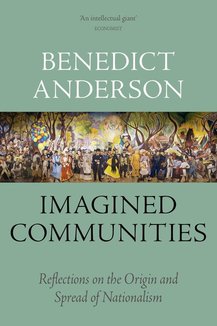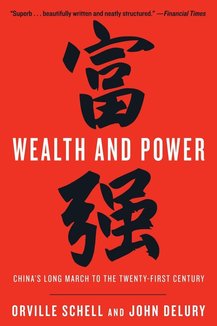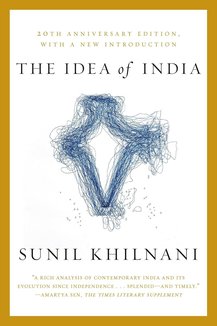Recommended Books

Imagined Communities: Reflections on the Origin and Spread of Nationalism
Author:
Benedict Anderson
ISBN 13:
978-1784786755
This “sparkling” and world-famous work examines what drives people to live, die, and kill in the name of nations—revealing the surprising origins and development of nationalism ( The Guardian ). The full magnitude of Benedict Anderson’s intellectual achievement is still being appreciated and debated. Imagined Communities remains the most influential book on the origins of nationalism, filling the vacuum that previously existed in the traditions of Western thought. Cited more often than any other single English-language work in the human sciences, it is read around the world in more than thirty translations. Written with exemplary clarity, this illuminating study traces the emergence of community as an idea to South America, rather than to nineteenth-century Europe. Later, this sense of belonging was formed and reformulated at every level, from high politics to popular culture, through print, literature, maps and museums. Following the rise and conflict of nations and the decline of empires, Anderson draws on examples from South East Asia, Latin America and Europe’s recent past to show how nationalism shaped the modern world.

Wealth and Power: China's Long March to the Twenty-first Century
Authors:
Orville Schell
,
John Delury
ISBN 13:
978-0812976250
Through a series of lively and absorbing portraits of iconic modern Chinese leaders and thinkers, two of today’s foremost specialists on China provide a panoramic narrative of this country’s rise to preeminence that is at once analytical and personal. How did a nation, after a long and painful period of dynastic decline, intellectual upheaval, foreign occupation, civil war, and revolution, manage to burst forth onto the world stage with such an impressive run of hyperdevelopment and wealth creation—culminating in the extraordinary dynamism of China today? Wealth and Power answers this question by examining the lives of eleven influential officials, writers, activists, and leaders whose contributions helped create modern China. This fascinating survey begins in the lead-up to the first Opium War with Wei Yuan, the nineteenth-century scholar and reformer who was one of the first to urge China to borrow ideas from the West. It concludes in our time with human-rights advocate and Nobel Peace Prize laureate Liu Xiaobo, an outspoken opponent of single-party rule. Along the way, we meet such titans of Chinese history as the Empress Dowager Cixi, public intellectuals Feng Guifen, Liang Qichao, and Chen Duxiu, Nationalist stalwarts Sun Yat-sen and Chiang Kai-shek, and Communist Party leaders Mao Zedong, Deng Xiaoping, and Zhu Rongji. The common goal that unites all of these disparate figures is their determined pursuit of fuqiang, “wealth and power.” This abiding quest for a restoration of national greatness in the face of a “century of humiliation” at the hands of the Great Powers came to define the modern Chinese character. It’s what drove both Mao and Deng to embark on root-and-branch transformations of Chinese society, first by means of Marxism-Leninism, then by authoritarian capitalism. And this determined quest remains the key to understanding many of China’s actions today. By unwrapping the intellectual antecedents of today’s resurgent China, Orville Schell and John Delury supply much-needed insight into the country’s tortured progression from nineteenth-century decline to twenty-first-century boom. By looking backward into the past to understand forces at work for hundreds of years, they help us understand China today and the future that this singular country is helping shape for all of us. NAMED ONE OF THE BEST BOOKS OF THE YEAR BY ST. LOUIS POST-DISPATCH “Superb . . . beautifully written and neatly structured.” — Financial Times “[An] engaging narrative of the intellectual and cultural origins of China’s modern rise.” — The New York Times Book Review “Informative and insightful . . . a must-read for anyone with an interest in the world’s fastest-rising superpower.” — Slate “It does a better job than most other books of answering a basic question the rest of the world naturally asks about China’s recent rise: What does China want ?” — The Atlantic “The portraits are beautifully written and bring to life not only their subjects but also the mood and intellectual debates of the times in which they lived.” — Foreign Affairs “Excellent and erudite . . . [The authors] combine scholarly learning with a reportorial appreciation of colorful, revealing details.” — The National Interest

The Idea of India: 20th Anniversary Edition
Author:
Sunil Khilnani
ISBN 13:
978-0374537623
A classic since it was first published in 1997, The Idea of India is a magisterial historical study that addresses the paradoxes and ironies of the world’s largest democracy. When, in 1947, the British divided and departed their most prized imperial possession, they handed a huge, diverse, and poor society to a small nationalist elite. For decades this elite would uphold a political construct, an idea of India grounded in democracy, religious tolerance, economic development, and cultural pluralism. Sunil Khilnani investigates the fate of this idea, offering incisive portraits of Gandhi, Nehru, and other Indian founders and assessing the lively debates among them and their successors over who is an Indian, the meaning of modernity, and India’s place in the world. In a new introduction written for this edition, Khilnani reflects on the book’s striking relevance to the country’s recent developments―from the rise of a new billionaire class to the election of a government with a more exclusivist conception of Indian identity. Throughout, he provokes readers and illuminates a fundamental question as urgent now as ever: Can the original idea of India survive its own successes?